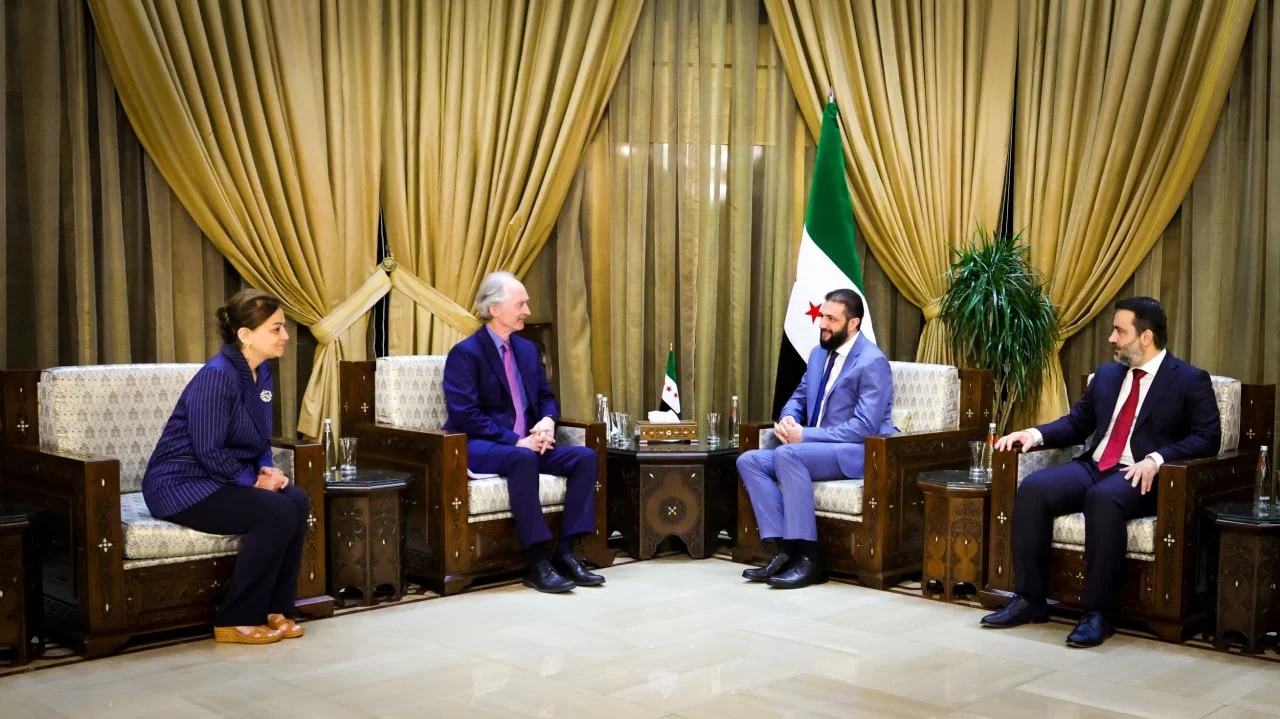The United Nations Security Council held a closed-door consultation session on Monday to address the latest developments in Syria, with a particular focus on the recent terrorist attack targeting St. Elias Church in the al-Dweilaa district of Damascus.
During the meeting, UN Special Envoy for Syria Geir Pedersen delivered a virtual briefing from Damascus, where he strongly condemned the attack. “Targeting civilians and places of worship is a flagrant violation of international law and undermines efforts toward peace,” Pedersen stated.
High-Level Meetings in Damascus
Pedersen’s remarks came just a day after his meeting with Syria’s transitional president Ahmad al-Sharaa and Foreign Minister Asaad Hassan al-Shibani. According to the United Nations News Service, discussions centered on the broader security challenges facing Syria, with special attention given to the church bombing.
UN spokesperson Stéphane Dujarric confirmed in a daily press briefing that the consultations addressed both the St. Elias attack and the general security landscape in the country. Pedersen also held talks with other key stakeholders, including the Patriarch of the Orthodox Church.
Security Gaps and Inclusive Transition
In his address to the Security Council, Pedersen highlighted Syria’s growing exposure to terrorist threats and unresolved conflicts, warning of the “widespread sense of exclusion” felt by many Syrians. While he acknowledged the efforts by Syria’s interim authorities to improve security conditions, he stressed the need to intensify those efforts alongside expanded international support.
“The United Nations remains committed to supporting a comprehensive political transition that ensures the safety of all Syrians and meets the aspirations of the entire Syrian people,” he concluded.
Pedersen later posted on the social media platform X (formerly Twitter) that he had also discussed the implementation of agreements with the Syrian Democratic Forces (SDF), developments in Sweida province, and progress toward forming a new People’s Assembly.
A Devastating Attack and Its Aftermath
The attack on St. Elias Church occurred on June 22 during Sunday mass and resulted in the deaths of 26 civilians and injuries to 63 others, according to Syria’s Ministry of Health. The assault, the deadliest in years, was widely condemned as a major failure of Syria’s new security apparatus.
While the Syrian Interior Ministry reported the arrest of a cell linked to ISIS, a lesser-known group, Saraya Ansar al-Sunna, claimed responsibility for the bombing and has issued threats targeting other churches.
The attack has reignited fears of a renewed wave of terrorist violence in Syria, drawing scrutiny toward the capacity and readiness of the country’s transitional security forces. Observers point to the bombing as a stark indication of continuing fragility and the urgent need for coordinated national and international counterterrorism efforts.
This article was translated and edited by The Syrian Observer. The Syrian Observer has not verified the content of this story. Responsibility for the information and views set out in this article lies entirely with the author.


